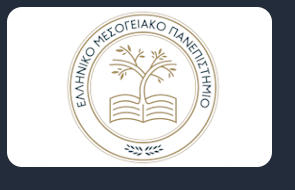Λειτουργικά Συστήματα (8.009)
Dear Students,
The final Oral exam for Operating Systems will be held as follows. (For any questions, inquiries, etc., please email.)
28 August, 16:00-18:00 - AISE Lab
Μπόζιος Ιωάννης ΤΗ20175
Γαντζούδης Μάριος ΤΗ20056
Ντάλας Βασίλειος ΤΗ20093
Μαστροκώστας Άγγελος ΤΗ20368
(* ERASMUS students do not participate this time)
STUDY MATERIAL
For the theory, focus on Tannenbaum's Modern Operating Systems book (2014, or even 2024 edition): chapters 1 to 6 (~440 pages). The material concerns process/threads and synchronization/communication/hazards (data races, inluding deadlocks): chapters 2 & 5, process scheduling (chapter 2), memory management: virtual to physical address translation, paging (chapter 3), virtual memory, drivers (chapter 5), and file systems (chapter 4). Real-time systems are also discussed in the slides (see ECLASS theory material).
The Laboratory deals with open source issues, Linux organization, basic commands, shell scripts, as well as programming issues related to POSIX, specifically process/threads (lifecycle) and synchronization/communication/hazards (data races, deadlocks) implemented in C/C++ code using open source Linux libraries. The assignments given to you (both solved and unsolved) help you understand the corresponding theoretical material in depth.
NOTE: The final exam is held orally in person at the Laboratory of Artificial Intelligence and Systems Engineering (AISE Lab, 2nd floor, 2nd door to the left). The lab is just above the Erasmus office, but the entrance is from the stairs on the South of that building. Be there on time (see above for the schedule).
ORAL EXAM & GRADING
The oral questions for each student normally last 15 to 20 minutes. There is a continuous flow of questions, and the student who is asked each question must answer immediately, orally, without any delay. Late answers are not graded.
The questions concern definitions, comprehension or judgment questions, and specific examples and exercises where the methodology and description of the analysis/synthesis process of algorithmic solutions or implementations should be presented precisely, without usually asking for detailed computational steps. Not many details are asked at the code level, but if any additional detailed information is needed at the code level, pseudocode, manual, etc., it will be available from the instructor.
Your answers are recorded on a relevant form so that the final score is normally announced immediately (exercises are taken into account only if taking the course for the first time). In the event of an interruption of the exam due to technical reasons or another issue, the exam is repeated (or continued from the point it was interrupted) immediately afterwards, or on another day after consultation with completely different subjects.
Miltos
